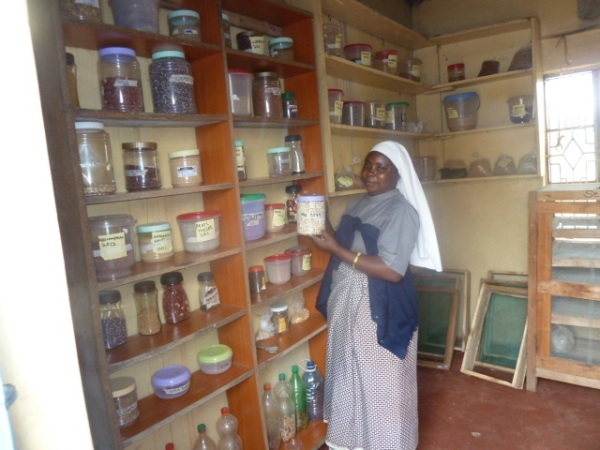G-BIACK Has a New Seed Bank
Photo: Sister Bertila Kwigema, a 2-month intern from Tanzania, montitors the GBIACK seed bank's stores. Seed saving is seed security. Seed banks store seeds as a source for planting in unforeseen emergencies, to use for replanting in case certain crops die out or are destroyed, or there is scarcity. The seeds stored may be food crops, or those of rare species to protect biodiversity. In the case of food crops, many useful, reliable indigenous plants that were developed over centuries are now fading away due to "modernized" seed technologies. The indigenous seeds are now becoming extinct or rare. Seed banks are a type of gene bank. When stored correctly, seeds can remain viable for decades or even centuries. This is the reason why G-BIACK has taken the initiative of having a seed bank to store indigenous seeds from traditional local farming as well as from other parts of the country. Through generous funding from two of our partners, G-BIACK has constructed a seed bank that will store traditional varieties of indigenous open-pollinated seeds. We have taken the initiative of going around the country collecting endangered seed species. These seeds will be bulked and later taken back to the farmers for further multiplication. G-BIACK has started a massive campaign of teaching farmers the skill of indigenous seed-saving because seeds are our heritage, and they are one key to a sustainable food system in Kenya. top | Newsletter Home | Article Index | Archive
|



